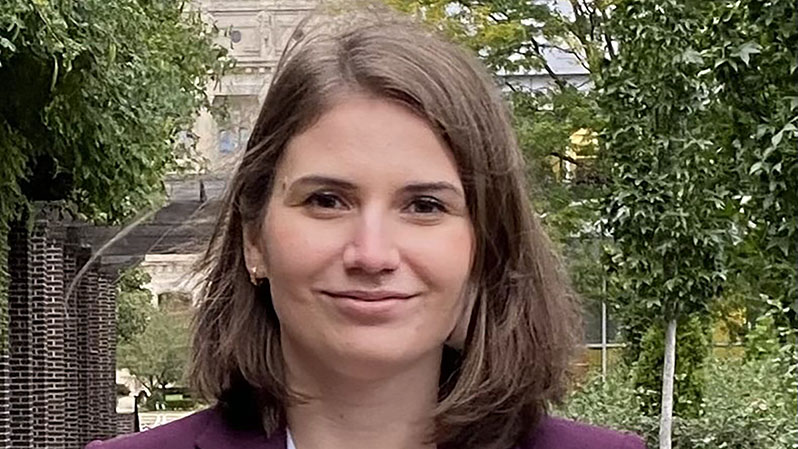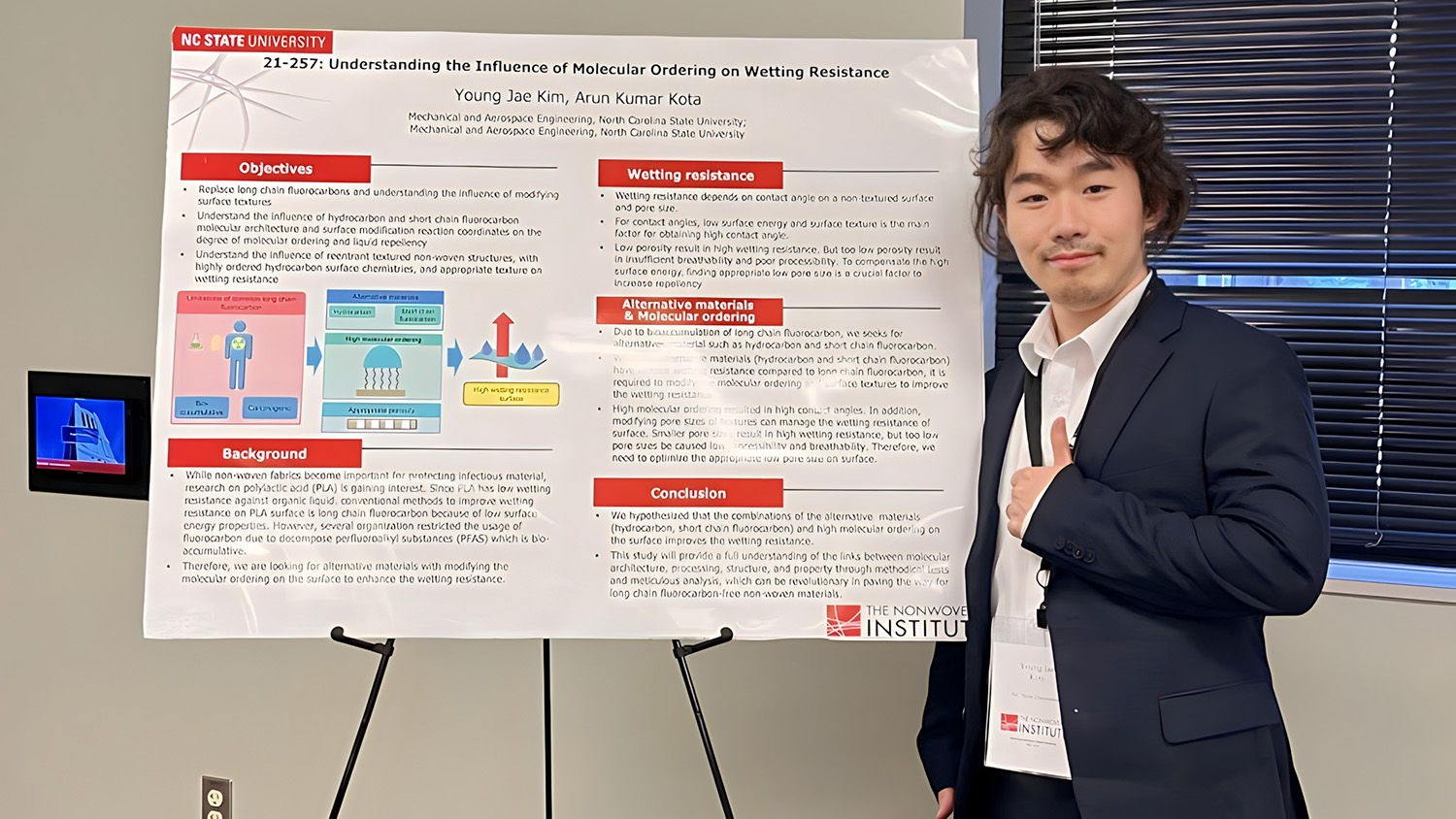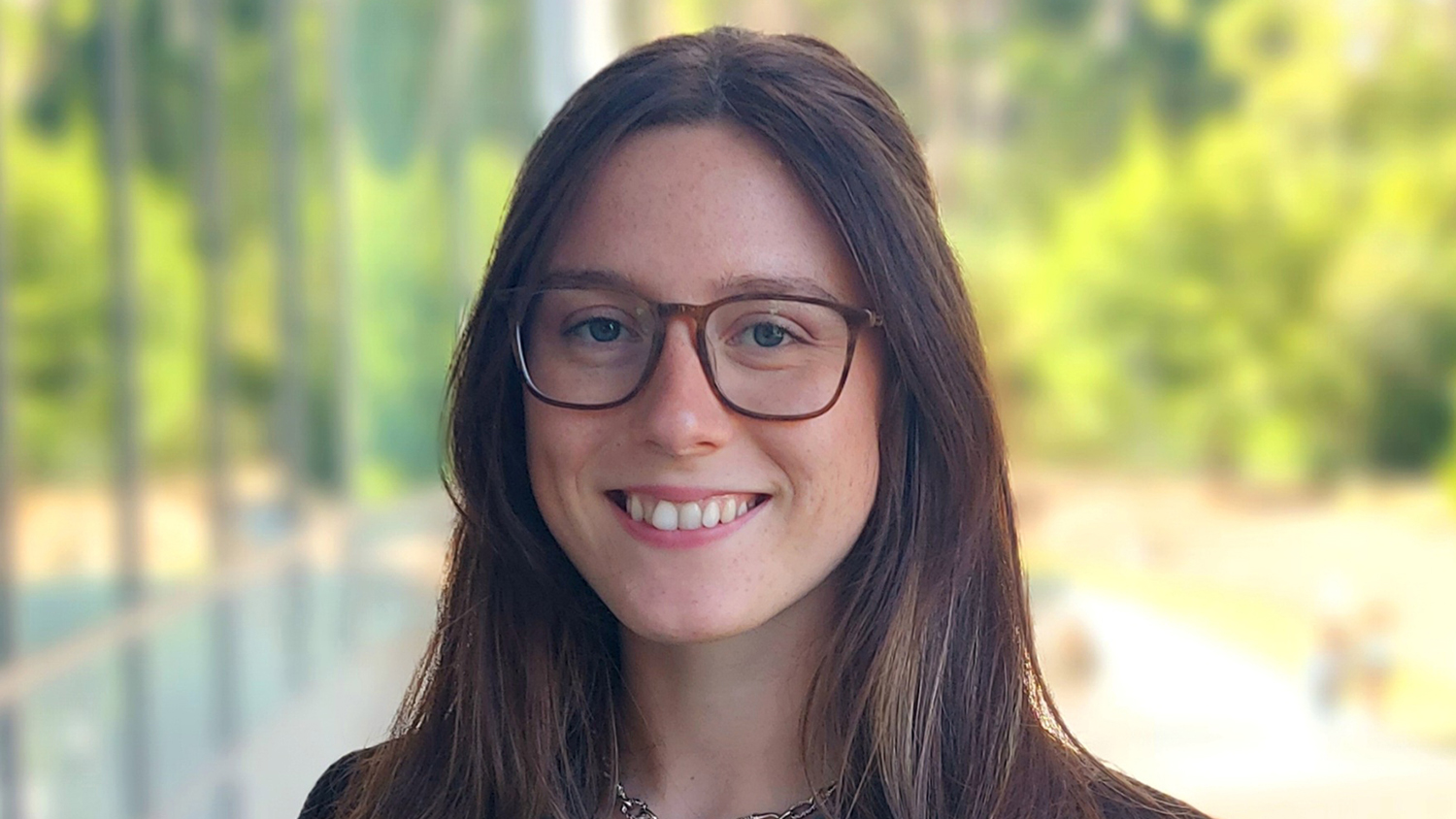Jose Alejandro Fernandez, Biodegradability of Polymers, Blends and Additives for Nonwovens
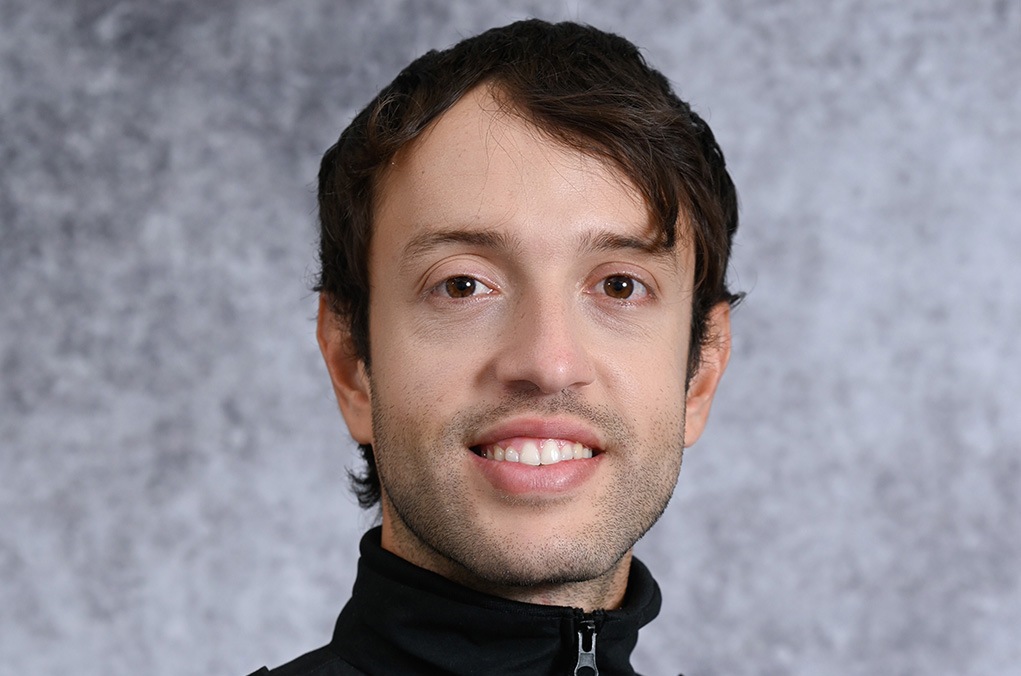
Jose Alejandro Fernandez
Degree Type: Ph.D.
Expected Graduation Date: 2027
School/Department: College of Natural Resources, Department of Forest Biomaterials
Program/Focus: Sustainability, Green Chemistry, Wood-Based Products
Research Project: Understanding the Fundamentals of the Biodegradability of Polymers, Blends and Additives for Nonwoven Applications
Professor/Faculty Advisor: Richard Venditti, Ph.D., NC State University; Joel Pawlak, Ph.D., NC State University
How did you come to have an interest in nonwovens?
After graduating from university in Venezuela I worked in a research laboratory. Then, in 2022 I was offered an opportunity to pursue a Ph.D. at NC State. I interviewed with Dr. Venditti, and he told me about a project with The Nonwovens Institute (NWI) focused on biopolymers, which sounded very interesting and I accepted. I found it interesting that the Department of Forest Biomaterials and NWI were working together to develop sustainable solutions for nonwovens.
Why are your research/findings particularly important/compelling for nonwovens applications?
My research project focuses on biodegradation of fibers made of polylactic acid (PLA) and how other polymers and additives help to biodegrade it. The textile industry generates a large number of waste streams, representing an environmental threat. New polymer/product alternatives are needed.
PLA is a bio-based polymer, and it is attracting attention from textile manufacturers. We are aiming to provide information about how this polymer can be applied in textiles (specifically nonwovens) and how it will biodegrade when blended with other polymers and additives. To do so, we are spinning fibers and performing both thermal and morphological characterization techniques on them. After going through these analyses, biodegradation experiments in different conditions (aqueous, soil and composting) will performed on the fibers. By means of the CO2 production from the biodegradation experiments, we will correlate the biodegradation percentage to the fibers.
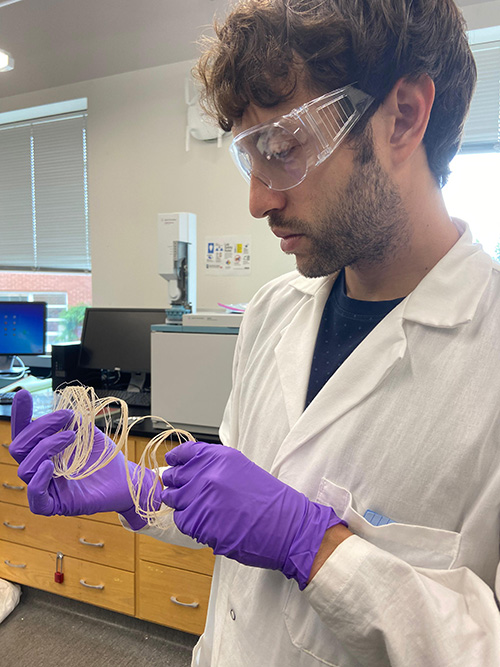
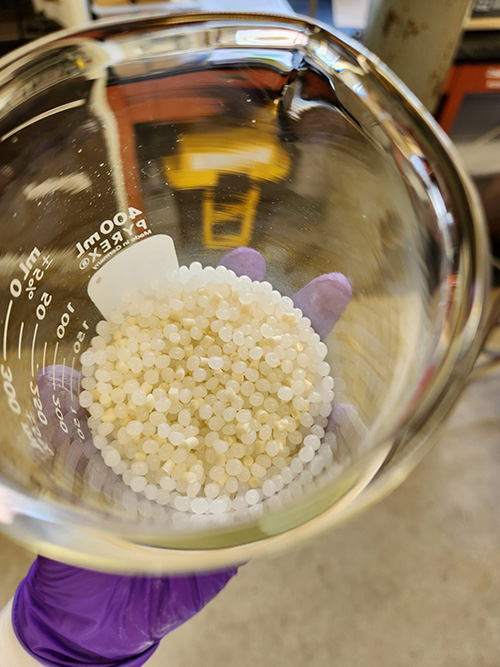
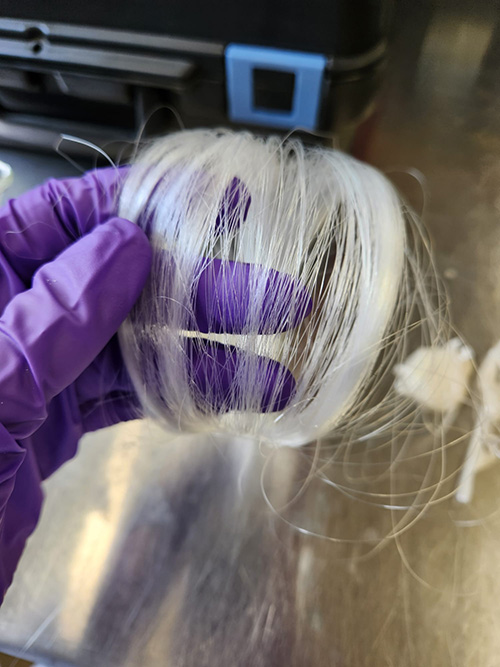
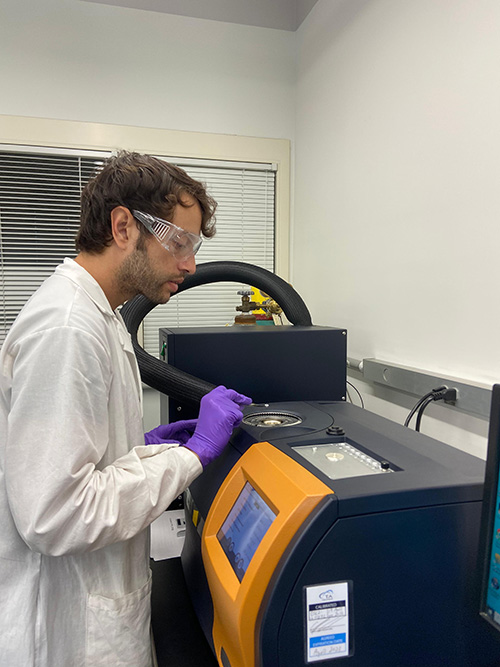
Where do you see yourself upon completion of your studies? Where do you see yourself 5-10 years into the future as you progress in your career?
I’ve been working in academia since graduating from university, and I like it. However, when I did my internships, I also felt attracted to opportunities in industry. Now I believe I would like to dedicate more time to working in industry after getting my Ph.D. The chemical and textile industries are two of the sectors I would like to pursue. After I’ve gained strong experience in industry, I would like to pursue opportunities as a faculty member at a university in Venezuela or elsewhere.
When you are not studying and doing your nonwovens research project, what are your personal interests, hobbies … any activities you would like to highlight?
I love outdoor activities like running and hiking. I’ve run eight half marathons and one marathon to date. In Venezuela (where I come from), I’m a three-time national medalist in racewalking. Most recently, I competed in the 2025 USA Track & Field 35km Race Walk Championship in Santee, California.
I try to balance sports and academics because I consider it healthy to focus my mind on different aspects of life. Not everything has to be work or sport; if we can find a point where we can enjoy a little bit of everything, we will not feel like our life turns around only one thing, which sometimes can be frustrating.
- Categories:
